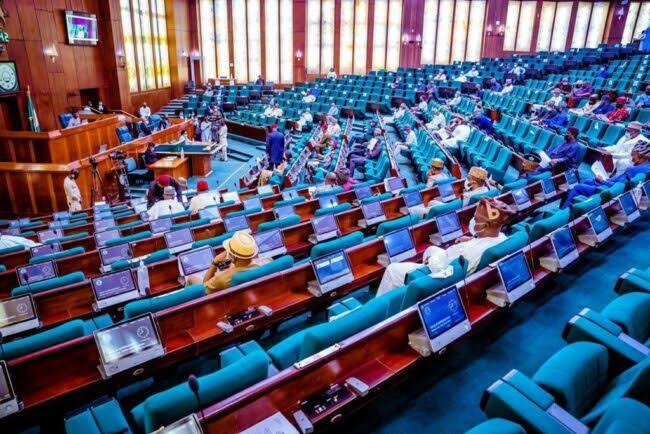The Nigerian education sector has long been a cornerstone of the nation’s aspirations for growth and development. However, a recent statement by the Minister of Education, Dr. Tunji Alausa, has brought a pressing issue into sharp focus: 85% of Nigerian students sent abroad on government scholarships do not return to contribute to the nation’s progress. This phenomenon, widely known as “brain drain,” represents a significant loss of human capital and a challenge to Nigeria’s ambitions for sustainable development.
The Scale of the Problem
Dr. Alausa’s revelation that 85% of government-sponsored scholars remain abroad after completing their studies is a sobering statistic. Nigeria has a long history of investing in the education of its citizens through programs like the Bilateral Education Agreement (BEA) scholarships and other government-funded initiatives. These programs aim to equip Nigerian students with world-class training in fields such as medicine, engineering, technology, and other critical sectors, with the expectation that they will return to drive innovation and development at home.
However, the reality is starkly different. The majority of these scholars, having gained advanced skills and exposure to opportunities in developed countries, choose to stay abroad. This trend deprives Nigeria of the expertise needed to address its developmental challenges, from improving healthcare and infrastructure to advancing technology and education. The loss of 85% of sponsored scholars is not just a statistic—it’s a drain on Nigeria’s intellectual and economic potential.
Understanding the Causes of Brain Drain
To address this issue, we must first understand why so many Nigerian scholars choose not to return. Several factors contribute to this trend:
-
Better Economic Opportunities Abroad
Developed countries often offer higher salaries, better working conditions, and access to cutting-edge resources in fields like medicine, engineering, and academia. For example, a Nigerian medical graduate trained in the UK or US may find lucrative job offers, advanced facilities, and a stable work environment abroad, compared to Nigeria’s often underfunded healthcare system. -
Lack of Infrastructure and Support at Home
Nigeria’s education and professional sectors frequently suffer from inadequate infrastructure, limited research funding, and bureaucratic inefficiencies. For instance, universities and research institutions may lack the equipment or funding needed to support cutting-edge work, discouraging scholars from returning to environments where they cannot fully utilize their skills. -
Political and Social Instability
Issues such as insecurity, corruption, and inconsistent government policies create an uncertain environment for professionals. Scholars who have experienced stable governance and safer living conditions abroad may be reluctant to return to a country grappling with these challenges. -
Weak Incentive Structures
Nigeria’s scholarship programs often lack robust mechanisms to ensure scholars return. While some agreements require beneficiaries to return and serve for a specified period, enforcement is weak, and there are few incentives—such as guaranteed employment, competitive salaries, or research grants—to entice scholars back. -
Cultural and Personal Factors
After years of living abroad, many scholars adapt to new cultures, build families, and establish professional networks in their host countries. Returning to Nigeria may mean uprooting their lives, facing reintegration challenges, or navigating a system that feels unfamiliar after years abroad.
The Impact of Brain Drain on Nigeria
The loss of 85% of government-sponsored scholars has far-reaching consequences for Nigeria’s development:
-
Economic Loss: The government invests significant resources in sponsoring students abroad, often covering tuition, travel, and living expenses. When these scholars do not return, Nigeria loses both the financial investment and the potential economic contributions these individuals could have made.
-
Human Capital Deficit: Nigeria faces shortages in critical sectors like healthcare, technology, and education. For example, the country has a doctor-to-patient ratio of about 1:2,500, far below the World Health Organization’s recommended 1:600. The absence of trained professionals exacerbates these gaps.
-
Missed Innovation Opportunities: Scholars trained in advanced fields bring cutting-edge knowledge and innovation. Their absence hinders Nigeria’s ability to develop homegrown solutions to local challenges, such as renewable energy, digital transformation, or medical research.
-
Perpetuation of Dependency: When skilled professionals remain abroad, Nigeria becomes more reliant on foreign expertise and imported solutions, which can be costly and less tailored to local needs.
Strategies to Reverse the Trend
To address this brain drain and ensure that Nigeria benefits from its investment in human capital, the government, private sector, and civil society must work together to create an enabling environment for returning scholars. Below are detailed strategies to tackle this issue:
-
Strengthen Return Policies and Enforcement
The government should revise scholarship agreements to include clear, enforceable obligations for scholars to return and serve in Nigeria for a specified period. For example, contracts could mandate a minimum of five years of service in public institutions or critical sectors. To enforce this, Nigeria could collaborate with host countries to track scholars’ post-graduation plans and impose penalties, such as repayment of scholarship funds, for non-compliance. -
Create Attractive Incentives
To compete with opportunities abroad, Nigeria must offer compelling incentives for returning scholars. These could include:-
Competitive Salaries and Benefits: Establish special salary scales for returning professionals in critical sectors, benchmarked against global standards.
-
Research and Innovation Grants: Provide funding for scholars to conduct research or start innovative projects in Nigeria, particularly in universities and research institutions.
-
Career Placement Programs: Partner with private and public sectors to guarantee job placements for returning scholars in roles that match their expertise.
-
-
Improve Infrastructure and Work Environments
Nigeria must invest in modernizing its infrastructure to create an enabling environment for professionals. For example:-
Upgrade university laboratories, hospitals, and tech hubs with state-of-the-art equipment.
-
Increase funding for research and development to allow scholars to pursue meaningful work.
-
Address bureaucratic bottlenecks that frustrate professionals, such as delays in licensing for medical practitioners.
-
-
Foster a Culture of Mentorship and Networking
Create platforms for returning scholars to connect with mentors, peers, and industry leaders in Nigeria. For instance, the government could establish a “Returning Scholars Network” to provide support, share opportunities, and ease reintegration. This network could also facilitate collaborations between Nigerian institutions and international universities, ensuring scholars remain connected to global trends while contributing locally. -
Address Broader Socioeconomic Challenges
Tackling brain drain requires addressing the root causes that make Nigeria less attractive to professionals. This includes improving security, ensuring stable electricity, and implementing transparent governance. For example, creating safe and conducive environments in cities like Lagos, Abuja, and Port Harcourt could make them more appealing to returning scholars. -
Engage the Diaspora
Not all scholars will return permanently, but Nigeria can still benefit from their expertise. The government could establish diaspora engagement programs, such as virtual mentorship, knowledge transfer initiatives, or short-term return programs where scholars contribute to specific projects without relocating permanently. -
Public-Private Partnerships
Collaborate with private companies to create opportunities for returning scholars. For instance, tech giants like Google or local firms like Flutterwave could partner with the government to offer internships, fellowships, or innovation hubs for scholars in STEM fields.
Lessons from Other Countries
Nigeria is not alone in facing brain drain, and it can learn from countries that have successfully reversed similar trends. For example:
-
India: India has implemented policies to attract its diaspora, such as the Overseas Citizenship of India (OCI) program, which encourages professionals to return or contribute remotely. India also invests heavily in its technology and research sectors, creating opportunities for skilled professionals.
-
South Korea: In the 1960s and 1970s, South Korea faced significant brain drain but reversed it by investing in industrial development, offering competitive salaries, and creating research institutions like the Korea Advanced Institute of Science and Technology (KAIST).
-
Ghana: Ghana’s “Year of Return” initiative has successfully attracted diaspora talent by promoting cultural ties and investment opportunities.
Nigeria could adapt these models by creating targeted programs that combine economic incentives, cultural engagement, and professional opportunities.
The Role of Stakeholders
Addressing brain drain is a collective responsibility:
-
Government: Lead policy reforms, enforce return agreements, and invest in infrastructure.
-
Private Sector: Create job opportunities and fund innovation hubs for returning scholars.
-
Academia: Partner with international institutions to provide research opportunities and mentorship.
-
Civil Society: Advocate for policies that support returning scholars and raise awareness about their contributions.
-
Scholars Themselves: Recognize their role in nation-building and commit to giving back to Nigeria, even if through short-term contributions.
Join our Whatsapp channel to stay updated always!


